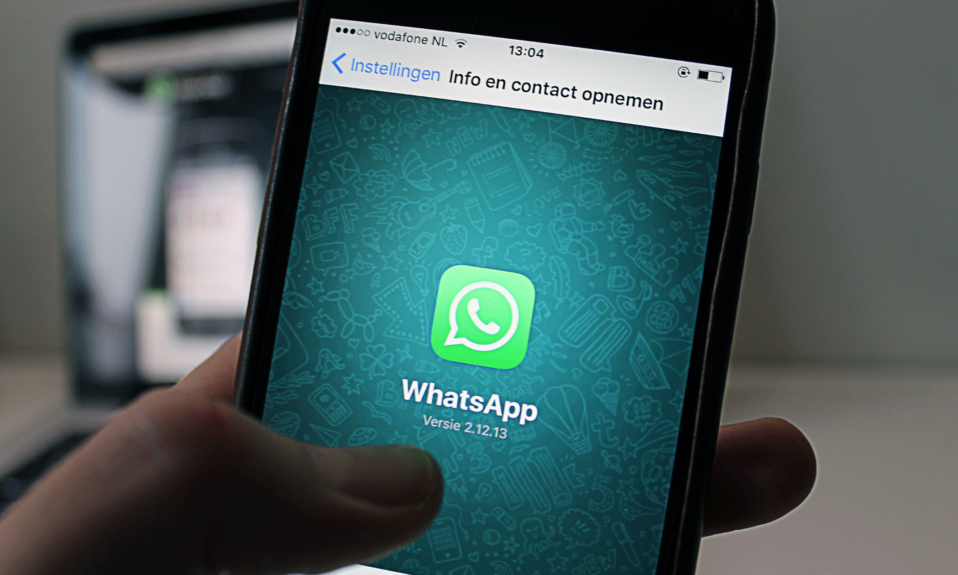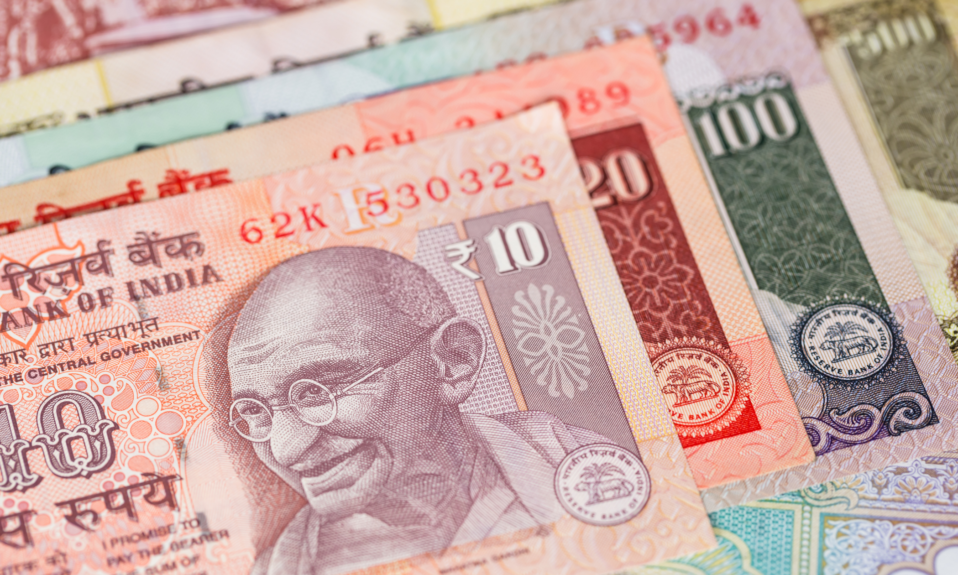
WhatsApp is a fun and easy-to-use social media application compatible with all smartphones, tablets, and desktop devices.
This free to use instant message app has exciting features like status updates, WhatsApp for Web, WhatsApp Business, audio, and video calls, chatting with stickers, GIFs and emojis, etc. to attract users and ensure that all communication remains secure and private through its end-to-end encryption feature.
WhatsApp is the 4th most popular app in the world and the 3rd most popular app in India. India is the biggest market for WhatsApp, as there are more than 400 million WhatsApp users in India.
- Number of Active WhatsApp Users in India
- How Many WhatsApp Users in India?
- WhatsApp Usage Statistics – 2021
Number of Active WhatsApp Users in India
There are more than 2 billion active WhatsApp users in the world.
WhatsApp was created in 2009 by two former employees of Yahoo by the name of Brian Acton and Jan Koum. After they left Yahoo in 2007, both had applied for jobs at Facebook Inc., but their applications were rejected. As they continued to search for jobs, they came across the idea of developing an instant messaging app that would show people’s online status along with their names. They developed and launched WhatsApp in 2009 for both Android and iPhones.
Since then, the number of users on Whatsapp has increased to more than 2 billion active users globally. It is the 3rd most popular social media application after Facebook and YouTube.
On a daily basis, there are 1 billion active WhatsApp users in the world.
On average, almost 1 billion people are online on WhatsApp every day, and nearly 1.6 billion access the app every month. They use this multifunctional application to chat with their friends and family, send and receive messages, audio messages, voice calls, audio calls, files, links, locations, contacts, images, and videos.
In the USA alone, there are 68.1 million WhatsApp users.
The USA is the third biggest market for WhatsApp after India and Brazil. Its popularity is continuing to grow in the USA, and it is predicted that by 2023, there will be 85.8 million total WhatsApp users in the USA.
Daily, 500 million people upload their stories on WhatsApp status.
WhatsApp’s status feature is a lot like that of Snapchat, Facebook, and Instagram as these stories self-destruct after 24 hours. People can share their pictures or videos as a story on WhatsApp, and only people who are in the user’s contact list will be able to see them. The user is able to see the list of people who have viewed the status. After 24 hours, the status self-destructs. However, you can still take screenshots of the status and share it with other people.
Similarly, people can directly reply to the status and start a conversation with the person who has posted it. Updating WhatsApp’s 24 hours status has become one of the most popular ways of keeping friends and family updated about your lives and perhaps this is the reason why every day, 500 million people choose to update their status.
By July 2020, India had more than 400 million WhatsApp active users.
Although WhatsApp has never officially released the statistics for the total number of WhatsApp users in India, according to Mint, in July 2020, the number of WhatsApp users in India had surpassed 400 million, making India the biggest market for WhatsApp.
India is now the largest WhatsApp user base globally.
Even though India is the largest market for WhatsApp, according to the Global Web Index, its market penetration in India is 70%. It means that other social media applications or instant messaging apps like WeChat, Instagram, or Facebook messenger are also widely popular for exchanging messages, images, videos, and documents online.
How Many WhatsApp Users in India?
From the table above it can be seen that WhatsApp remains to be the most popular mobile application in India. It has been ranked No.1.
In November 2020, WhatsApp was downloaded 17 million times in India.
The popularity of WhatsApp was at its peak in 2020 in India especially because the Coronavirus pandemic and the resulting lockdowns had made people dependent on social media apps for communicating with their personal and professional contacts. In the month of November, WhatsApp number of downloads was recorded 17 million times.
There are currently more than 400 million WhatsApp users in India.
The Indians who used WhatsApp the most are men between the ages of 18-34.
Due to the gender gap and the tech-savvy young population in India, it was seen that the majority of WhatsApp users were young people.
More than 15 million people in India use the WhatsApp Business App every month.
Currently, India is the biggest market for WhatsApp in the world. It has more than 400 million WhatsApp users who use this instant messaging app for personal and professional communication. WhatsApp Business App is so popular in India that out of the 50 million global users who use WhatsApp Business App to promote their business online, 15 million users are from India.
Because of WhatsApp’s new privacy feature, 36% of users in India are thinking about switching to other instant messaging apps like Signal and Telegram.
WhatsApp’s total downloads in India decreased by 35% during the first 2 weeks of January 2021.
In January 2021, WhatsApp’s owner, Facebook, Inc. rolled out a new privacy policy for all 2 billion WhatsApp users worldwide. According to this new privacy policy, Facebook has the right to store and use people’s cell numbers, which they use for the creation of their WhatsApp accounts. The company announced that all the sister social media apps that are operating under the Facebook umbrella will be sharing users’ information like location, numbers, and chat history to make the services more synchronized among all the platforms.
This news was not received well in Facebook and WhatsApp’s biggest market in the world. Indians expressed their privacy concerns and WhatsApp downloads in India reduced by 35% and dropped from a mark of 2 million downloads to 1.3 million downloads. As a consequence competitor app, Signal, saw a drastic increase in the number of downloads within the same 2 weeks of January. From just 24,000 downloads, Signal was downloaded 2.3 million times between January 6th and 10th.
Moreover, it is estimated that in the coming months, 36% of Indians will uninstall WhatsApp and completely switch to Signal or Telegram. Facebook Inc. had previously given all WhatsApp users time until February 8th to accept the new privacy policy, but it has now decided to extend the deadline until May 15th. After this deadline, all those accounts that have not accepted the new terms and conditions will automatically become inactive. It seems that the majority of the Indians are waiting until May 15th to uninstall their WhatsApp because according to Reuters, so far, WhatsApp has not been uninstalled in a large number in India.
WhatsApp Usage Statistics – 2021
The recent stats for WhatsApp for the year 2021 show that:
By the end of 2021, the total number of WhatsApp users around the world will reach 2.6 billion.
According to Statista, WhatsApp is swiftly catching up with the total number of Facebook users around the world. By the end of 2021, it is predicted that the total number of WhatsApp users around the world will reach 2.6 billion.
WhatsApp will lose millions of its users in 2021.
However, according to recent news reports, in 2021, WhatsApp will most probably lose millions of its users worldwide due to the new privacy policy that is rolled out on January 4th, 2021. In the first 3 weeks of January, it was seen that many WhatsApp users around the world downloaded competitor instant messaging apps like Signal and Telegram. The UK Parliament’s Home Affairs committee Committee announced that in total, Signal had gained 7.5 million new users around the globe and Telegram had gained 25 million new users right after Facebook announced the new privacy policy for WhatsApp.
Gen Z and millennials will use WhatsApp the most.
Gen Z or people below 24 years of age and millennials between the ages of 25 to 40 use WhatsApp the most. 54% of the millennials were using WhatsApp as their primary channel for communication in 2020, and this trend is expected to remain the same in 2021. Similarly, 51% of Gen Z was using WhatsApp as their primary channel for communication in 2020, and the trend is expected to remain the same for 2021.
WhatsApp Users in World vs. India
WhatsApp is the most used app in the world in terms of monthly active users. It has 1.6 billion monthly active users, which is higher than Facebook.
Even though WhatsApp is the 3rd most popular app in the world and is right behind Facebook and YouTube in terms of total users, it has more daily active users than Facebook and YouTube. Nearly 1.6 billion people are online on WhatsApp every month and use it to communicate with friends, family, and colleagues.
WhatsApp is banned in China. China alone is home to 1.4 billion people.
Even though the usage of WhatsApp is banned in China, which is the most populated country in the world, WhatsApp still has 1.6 billion daily active users. This means that the rest of the world is actively using WhatsApp to communicate.
WhatsApp is available in more than 60 languages and is being used in more than 180 countries.
WhatsApp has made its services available in more than 60 languages to appeal to native speakers of those languages. It can be used without restriction in almost 180 countries around the world. However, there are some countries like China, Saudi Arabia, and Syria that have completely banned WhatsApp. Some countries like the UAE have restrictions on voice and audio calling.
India and Brazil are the first and second second-largest markets for WhatsApp.
Even though the application was first made in the United States, its growth and expansion have primarily been outside of the USA. India is the first largest market for WhatsApp, with over 400 million users, and it is followed by Brazil, which is the 2nd largest market for WhatsApp, with nearly 100 million users.
In the USA, 53% of Americans access their WhatsApp daily.
The USA is the 3rd largest market for WhatsApp. and it is also the founding nation for this revolutionary instant messaging app. Therefore, it doesn’t come as a surprise that more than half of all Americans are online on WhatsApp every day.
In the United Kingdom, only 25.58% of the smartphone users use WhatsApp on their cellphones.
In Great Britain, Facebook Messenger is the most popular instant messaging application. It has a 60% market penetration rate. But slowly, WhatsApp is catching up, and currently, 25.58% of the smartphone users have installed WhatsApp on their phones.
Only 19% of the Canadians use WhatsApp.
WhatsApp was unable to penetrate the Canadian market with ease. Only 19% of the Canadians use WhatsApp for their day-to-day communication. The rest prefer to use Facebook messenger for communication.
Around 2 million people in China still manage to use WhatsApp.
Even though China has a complete ban on WhatsApp, 2 million Chinese people use WhatsApp through VPN services. WeChat is the Chinese version of WhatsApp, and it alone has over 490 million users in China. WeChat has 900 million users globally.
WhatsApp Chat Statistics
In April 2020, 100 billion messages per day were being exchanged on WhatsApp.
During the recent COVID-19 predicament, people around the world took to social media apps like Facebook, WhatsApp, and Twitter to share their feelings and connect with their friends and family. It was observed that at the peak of the Coronavirus pandemic when the whole world was locked inside their homes, the WhatsApp users exchanged an average of 100 billion messages per day.
In April 2020, WhatsApp users spent nearly 15 billion minutes on making WhatsApp voice and video calls.
Because of the Coronavirus pandemic, most of the people were confined to their homes and were unable to visit their friends and family. Quite a few people were forced to quarantine alone at home. During such cases, many people’s mental health was adversely affected as they were constantly worrying about their own health and the health of their loved ones. In such circumstances, WhatsApp came to the rescue, and its free audio and video calling feature allowed people to talk for hours with one another as long as they had access to the Internet.
On average, users exchange 65 billion WhatsApp messages per day.
The ease of chatting on WhatsApp is evident by the fact that the world over, people exchange nearly 65 billion WhatsApp messages per day. Its interesting and interactive features like GIFs, Stickers, emojis make conversations fun and engaging. Whether it’s long-distance friendships, relationships, or professional communication, WhatsApp has overtaken normal calling, text messaging, and emailing. For personal as well as professional communication, people rely on WhatsApp to quickly send and receive messages.
Its amazing features like the ability to delete messages, check when the message was read, have group chats and calls, send voice notes and star important messages make it an excellent social media application that works for all age groups and genders. People from all cultural, educational, and professional backgrounds find it easy and convenient, cost cost-effective and time time-saving to communicate via WhatsApp.
On average, every day 2 billion minutes of voice calls and video calls are made on WhatsApp.
According to the CNET, every day, almost 100 million voice calls and 55 million video calls are made through WhatsApp. This amounts to a total of 2 billion minutes of voice calls and video calls over WhatsApp. The only social media app that is performing better than WhatsApp in terms of video calling and voice calling is Skype. On average, Skype users spend nearly 3 billion minutes making audio and video calls over the platform.
WhatsApp Revenue and Finance Statistics
In 2014, Facebook Inc. bought WhatsApp for $ 19 billion.
When WhatsApp became a popular instant messaging application, Google first proposed to purchase it for $ 10 billion. The co-founders of WhatsApp, Jan Koum and Brian Acton refused to sign the deal. They knew that WhatsApp’s worth was a lot more than that. In 2014, Facebook Inc. approached the co-founders and offered to pay $ 19 billion for the app. This was the same Facebook that had refused to hire the co-founders as employees after they left Yahoo. However, WhatsApp’s co-founder agreed to sell WhatsApp to Facebook, and since 2014, WhatsApp has been part of the Facebook banner owned by Facebook.
Initially, WhatsApp used to charge a $1 yearly subscription fee for some countries.
When WhatsApp first started out, it used to generate revenue through the subscription and download model. In some countries, WhatsApp would charge an annual subscription fee of $ 1, whereas, in other countries, it would charge $ 1 every time the app was downloaded and installed on smart devices. However, in 2016, both these models were abandoned, and since then, WhatsApp has become a free-to-use mobile and desktop application.
Before the 2014 acquisition by Facebook Inc, WhatsApp was thriving on investments.
From 2009 until 2013, WhatsApp received investments in 3 batches. The initial investment was made by five friends and ex-colleagues of Brian Acton and Jan Koum, who together invested $250,000 for WhatsApp’s creation and establishment. In April 2011, Sequoia Capital invested $8 million in WhatsApp, and as a result, became a 15% shareholder of the company. The last batch of investments was made in July 2013, again by Sequoia Capital, and this time, the firm invested $52 million in WhatsApp. Their earlier investment had produced such a high return on investment (ROI) that they decided to invest again in 2013.
WhatsApp Country-wise User Statistics
The table below represents the number of WhatsApp users by country.
From the table above, we can see which countries have the highest number of WhatsApp users according to the statistics collected in September 2019. Even though the number of users for each has increased within the last 1 year, the market ratio remains the same. The USA is still the 3rd largest market for WhatsApp, and when it comes to WhatsApp numbers in the UK, we see that the UK is is still the 10th highest in the world.
According to eMarketer and Statista, in 2019, the number of WhatsApp users in the UK was 27.6 million. And even though results are not available for 2020 and 2021, due to the Coronavirus pandemic, it is expected that more people in the UK have installed WhatsApp to remain connected with their friends, family, and colleagues, thus boosting the numbers.
How Popular is WhatsApp?
In 2020, WhatsApp was downloaded 140 million times and became the 4th most downloaded app in the world.
In the third- quarter of 2020, WhatsApp was downloaded 140 million times. It became the 4th most downloaded app in the world after TikTok, Facebook, and Zoom. Therefore this also means that, in 2020, WhatsApp was the 4th most popular social media application in the world.
The bar graph above represents WhatsApp’s popularity chart.
WhatsApp is the 3rd most popular social media app in India.
After Facebook and YouTube, WhatsApp is the 3rd most popular social media application in India. It has a market penetration of 70%.
WhatsApp is ranked as the Top Mobile Application in India.
Even though it is the 3rd most popular social media application in India, when it comes to the best mobile phone applications (apps that aren’t primarily browser-based like Facebook and YouTube), WhatsApp ranks as No.1 amongst Indian smartphone users. The ease of downloading, accessing, and data management capabilities of WhatsApp makes it an excellent mobile phone application.
Conclusion
WhatsApp is a free-to-use, social media application that is widely used all over the globe. Its popularity is evident by the fact that there are more than 2 billion active WhatsApp users in the world, and its biggest market is in India. There are more than 400 million WhatsApp users in India who make up to 70% of India’s total social media market share. The easy-to-use, interactive features of WhatsApp make it the most sought-after social media application, and over the years, for many users, it has become the primary mode of communication with friends, family, and colleagues. However, due to its recent privacy policy, the future of the application remains uncertain as quite a few users are considering switching to Signal and Telegram due to privacy concerns.




